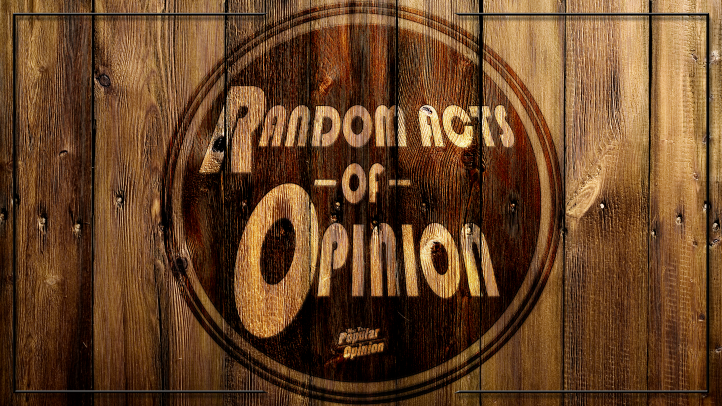

Sex and violence. Two of the most primal forces in human nature, this cinematic combination will always get a reaction from an audience. And if, as a filmmaker, that’s all you hope to get then walk with the hand of whatever god brung you. But like any other narrative device sex and violence are tools for creating an experience in effort to communicate something to your audience. Sex and violence are the spice in the dish and rarely will you ever see people tossing back mouthfuls of mustard seed. It happens; just not very often. If we insist on extending this food metaphor the question will always be; is the films meal all spice and no steak?
Love Lies Bleeding, the second feature from writer/ director Rose Glass, has plenty of sex and violence to sell. Lou’s (Kristen Stewart) lonely backwater life as the sole employee of the local gym is turned on its head when buff and beautiful Jackie (Katy O’Brian) blows into town on the way to a body building competition in Las Vegas. Immediately smitten with the Amazon, Lulu and Jackie find their passionate affair complicated when murder blows open their buried pasts. The film, also starring Dave Franco, Jenna Malone and Ed O’Neil resides in a stylized late 1980’s where its New Mexico location provides a sweaty desert backdrop for a story about two people hoping love will defeat the monsters they believe they are.
Glass’s vision for the film is an interesting balance of elements. A lean erotic thriller punctuated by a dark sense of humor, fits of extreme graphic violence and occasional flights of fantasy, the filmmaker appears as if they’re making sure never to take the material too seriously. The film follows its major theme of the dark side of love through all of it’s characters, showing examples of how something that’s supposed to be good can take you to terrible places. Coming on fast and strong, it’s ultimately effective at creating a visceral and shocking experience that’s equal parts steamy, ugly and bloody.
The film makes no attempt to draw a nuanced line between love and obsession and that might be to its detriment as we’re meant to believe it’s love that drags our heroines across their combined 40 miles of bad road. But what lies between the two characters seems to confuse love for lust and passion for romance. While the film delivers on it’s morose roller coaster it’s an argument to say it finds the sought after balance between all of its elements with its more exploitative pieces coming to the fore. Many thrillers of this type use sex to shortcut building intimacy between the romantic leads and it doesn’t always work as well as imagined. The chemicals certainly percolate, but the intimacy that should define the romantic fantasy of these two running away together doesn’t get as much focus and that feels somewhat purposeful given the leads are both women. One can applaud the desire to make a point about the visceral nature of sapphic sex while still questioning if the choice was right for the film.
The length of the film at one hour and forty-four minutes also raises the question of what was left on the cutting room floor as important pieces of character building seem to have been trimmed to the absolute bone, if they were ever part of the film at all. Exactly how close Lou was to her criminal father’s organization is left vague but not as vague as what prompted Jackie to flee from her adoptive home. It’s heavily implied that the steroid-like drugs she’s taking to prep for her competition are having negative psychological effects until it’s later revealed that the problems have always been there, which is a bit of a bait and switch that may make the drug angle both less interesting and redundant. The film is driven far more by its plot than it is an exploration of the characters so the drama comes from confronting situations rather than tackling inner demons. The breaks from reality are welcome in that they mark the director taking a chance on traipsing a cinematic divide, but one can question if they’re used often enough to make their inclusion more than a novel distraction.
This isn’t about whether or not the film ‘works’, which it most certainly does, or whether or not its entertaining, which it most certainly is. This is a question of whether or not the film as it was released delivers on the potential of its promise and, as far as it does go, it can be argued that it doesn’t go far enough. There may have been a concern that the films particular love story combined with violence and overt surreality was too much for most audiences, which seems a shame to consider. Sex and violence is great but these steps into the surreal are a richer cinematic field than any heightened depiction of reality, providing a greater opportunity to see the films world and the characters in it from the subjective emotional perspective of its players – literally providing a visualization of their subconscious. Once the film opened the door to that they would be within their rights to consider all bets off, making the restraint somewhat frustrating. It’s interesting to contemplate which direction would have served the film best; to go further or to have none at all.
Another aspect of the film that should, in a perfect world, be considered frustrating is that people will want to label it a, “queer love story” as if the nature of love and the stories we tell about it differ because of the people involved. For years we’ve tried to make the phrase, “Love is love” a mantra to support the real lived experiences of people all over the human spectrum and yet we’ll happily engage in segregation for demographics and marketing purposes. Now to be fair none of the films marketing material is labeling this a, “queer love story”, but this is the perspective being shared not only in much of the conversation generated about the film but even by its stars.
It’s fair to say that the market doesn’t really entertain many love stories featuring queer characters that aren’t about the hardships of overcoming the prejudices of the world and this is a real problem that needs to be tackled. But is the answer to the lack of portrayal of queer love as human love really to refer to it as if its something else or to treat queer relationships as if they’re genuinely different from their straight equivalents? Love is love means that all human beings love the same from a species perspective – of course we all differ significantly in the nitty-gritty details. But what this really means is there are no queer love stories just as there are no straight love stories. There are only love stories. Love Lies Bleeding is a love story – that’s a stone cold fact. It doesn’t need a qualifier as either a beacon or a warning.
If you want to normalize something you do it by treating it as if it is, in fact, normal. You don’t do it by calling it out as a separate thing. This film is a strong, engaging piece of work and it deserves better than to be looked at for how it fits representationally within a self imposed sub-genre. If that means that some members of the audience don’t get to feel special in their relationship to it; that’s just the price of being normal. You don’t get to have it both ways.
Sex and violence are two of the most powerful spices in the cinematic kitchen cabinet but they can’t turn an undercooked piece of meat into a satisfying steak. Luckily, writer/director Glass is pretty handy at the stove. Could Love Lies Bleeding have been pushed further into the surreal territory it opened up for itself? Sure. But as a lean, steamy thriller with a dark sense of humor it more than gets the job done. It may not make for a great meal but it’s one hell of a snack.
Clever endings aren’t my bag
Laterz

